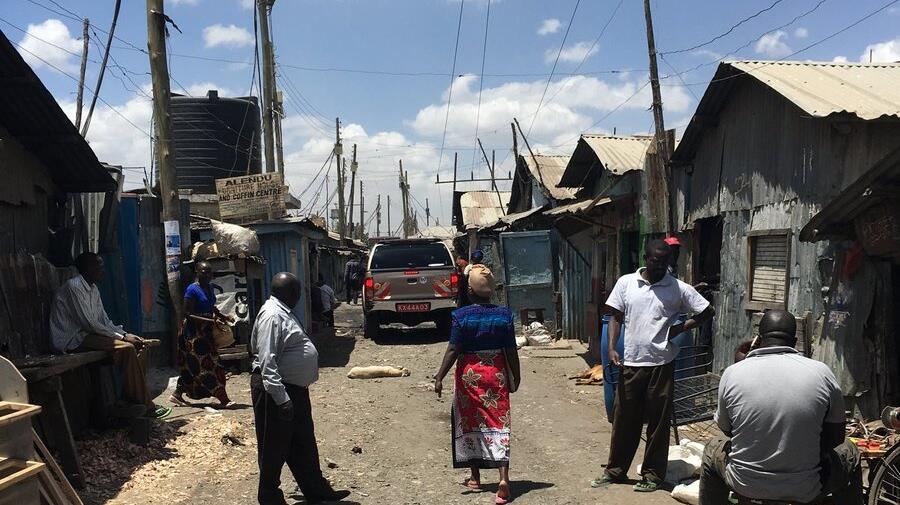
LSTM has been meeting with slum community groups, the media, civil society, government and academia as they gathered together at the African Population Health Research Center in Nairobi to celebrate the first public consultation of the new ARISE Hub.
Bintu Mansaray, from the College of Medicine and Allied Health Sciences, Sierra Leone, said: “This week has been an amazing experience and a learning one. It has been important to the ongoing COHMAS work on health systems strengthening in informal settlements so ARISE seamlessly feeds into this and will support us to move forward.”
One in three people in urban areas live in informal settlements. The role of ARISE, which has been made possible due to a £11.8 million award from the UK government’s Global Challenges Research Fund (GCRF), is to amplify citizen voice and support state accountability and answerability. The launch day was a chance to learn more about the priorities of Kenyan stakeholders to better understand how the team can move forward in a collaborative way.
The residents of informal settlements, who were represented by a range of stakeholders – from community groups, to Community Health Volunteers and religious leaders – took part in consultations that allowed them to raise the concerns that mattered most to them. Issues included: ensuring proper documentation, infrastructure problems, being ignored by the government, and lack of community involvement in development activities.
When it came to the research process stakeholders were concerned that there was recognition of the role of communities and engagement, that research teams were accountable and that there were no false promises. There are key mechanisms for building trust. Creating gendered spaces so that women’s voices and those of the most marginalised can be heard was considered an important.
ARISE, which is made up of partners from a range of backgrounds across Kenya, Sierra Leone, Bangladesh and India, has pledged to build on the knowledge and wisdom of communities of the urban poor, who are often already engaged in their own research.
Joseph Muturi, from Slum Dwellers International, said: “Our research work enables informal settlement residents to get the information that they need. Through this process they can support change – in terms of housing, sanitation, health and other things…We want to challenge researchers that work with us. Because we want research that makes a difference.”
The team found that there were many synergies between countries in relation to the issues that stakeholders considered important. Even if some of the groups were particular to national settings.
JK Lakshmi, from The George Institute, India, said: “With urbanisation on the rise the density of population is increasing and waste is increasing. The composition of the waste is also changing. It’s more and more environmentally unfriendly. Cities depend on waste management. Ironically the people involved in waste management are neglected so much more support is needed for waste pickers to help maintain cities.”
The Nairobi consultation has provided a great start and the team are now looking forward to working together on these issues over the next five years.